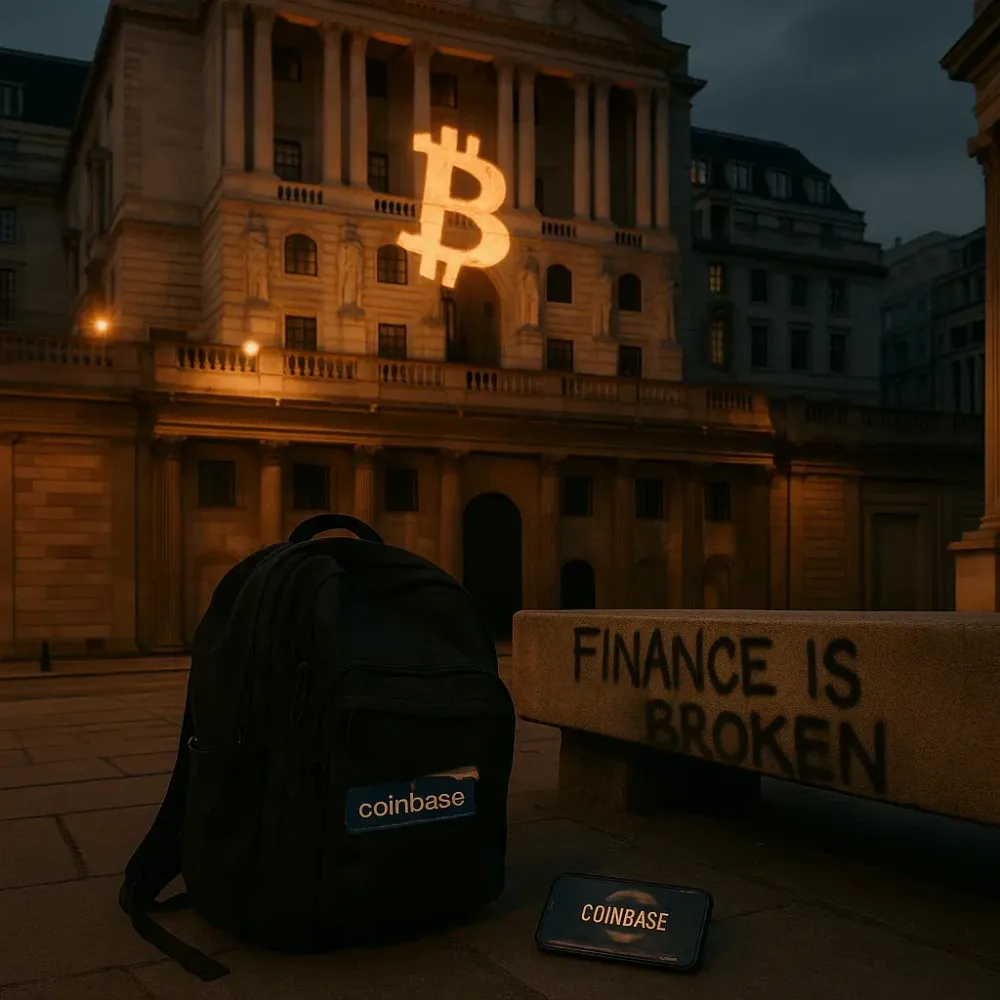Coinbase Ad Banned in the UK, Brian Armstrong Says Crypto Will Only Grow Stronger
Coinbase Ad Gets Banned in the UK — CEO Fires Back: “You Just Made Bitcoin Stronger”
The UK called it gambling. Brian Armstrong called it censorship. Guess who’s trending?
🧠 Quick Hits
- 📺 Incident: UK television networks banned a Coinbase ad
- 🇬🇧 Location: United Kingdom
- 📅 Public reaction: August 2025
- 🧠 CEO view: UK crypto stance is outdated and harmful
- 🚀 Coinbase UK launch: February 2025
- 📣 Ad message: TradFi is failing people — crypto is the fix
- 🇺🇸 Contrast: The same ad aired in the U.S. without issue
- 🔥 Impact: Armstrong says censorship will fuel crypto adoption
🚫 UK TV Bans Coinbase Ad — and Brian Armstrong Isn’t Having It
In classic “try to ban it, make it famous” fashion, UK broadcasters pulled a Coinbase commercial off the air — and Coinbase CEO Brian Armstrong went scorched earth in response.
The ad? A simple but spicy message:
“Traditional finance isn’t working for everyone. Crypto might.”
Apparently, that was too radical for the UK’s regulators, who still view crypto as a “gambling” product. Armstrong wasted no time clapping back, calling the decision “outdated,” “misinformed,” and “proof of relevance.”
📉 Innovation Talk, Regulation Walk
The UK has made bold claims about being a global fintech hub, but this ad ban shows the cracks in the narrative.
Coinbase officially launched in the UK in February 2025, expecting open arms. Instead, they got regulatory cold shoulders.
Meanwhile, the same ad aired in the U.S. — land of lawsuits and SEC showdowns — with zero bans.
Armstrong’s verdict? The UK’s attitude toward crypto “misses the point entirely,” and if they keep pushing it underground, it’ll only grow louder.
🗣️ Armstrong’s Mic Drop Moment
“If you can’t say it, then there must be a kernel of truth in it.” — Brian Armstrong on X
Armstrong made it clear: this wasn’t about politics, or even the UK — it was about freedom to challenge broken systems.
He stressed that Coinbase’s message is universal: make finance more inclusive, less extractive, and more accessible — goals the UK supposedly supports.
🔄 Censorship = Free PR?
Armstrong’s response is classic crypto playbook:
- Step 1: Get censored
- Step 2: Go viral
- Step 3: Meme it into movement
“We welcome the attacks and any other attempts to censor this message — it just helps it spread.”
And spread it did. Crypto Twitter lit up. YouTubers made breakdowns. Telegram groups shared the ad like it was digital contraband.
🇬🇧 Britain’s Gamble
Irony alert: by banning a non-UK-specific, non-political ad, the UK managed to:
- Alienate the world’s top crypto exchange
- Undercut its own fintech credibility
- Accidentally turn Coinbase into a freedom-of-speech icon
If regulators don’t adapt, they risk turning the UK into a cold storage vault — stagnant, locked down, and missing the next wave of innovation.
TL;DR
The UK banned a Coinbase ad that criticized traditional finance. Coinbase CEO Brian Armstrong clapped back, calling the ban outdated and a boost to crypto adoption. While the ad aired freely in the U.S., UK regulators called it gambling — highlighting the growing rift between fintech rhetoric and actual policy. For Armstrong, it’s censorship. For crypto, it’s free press.

Recent News
All Time High • Live
Have questions or want to collaborate? Reach us at: [email protected]










